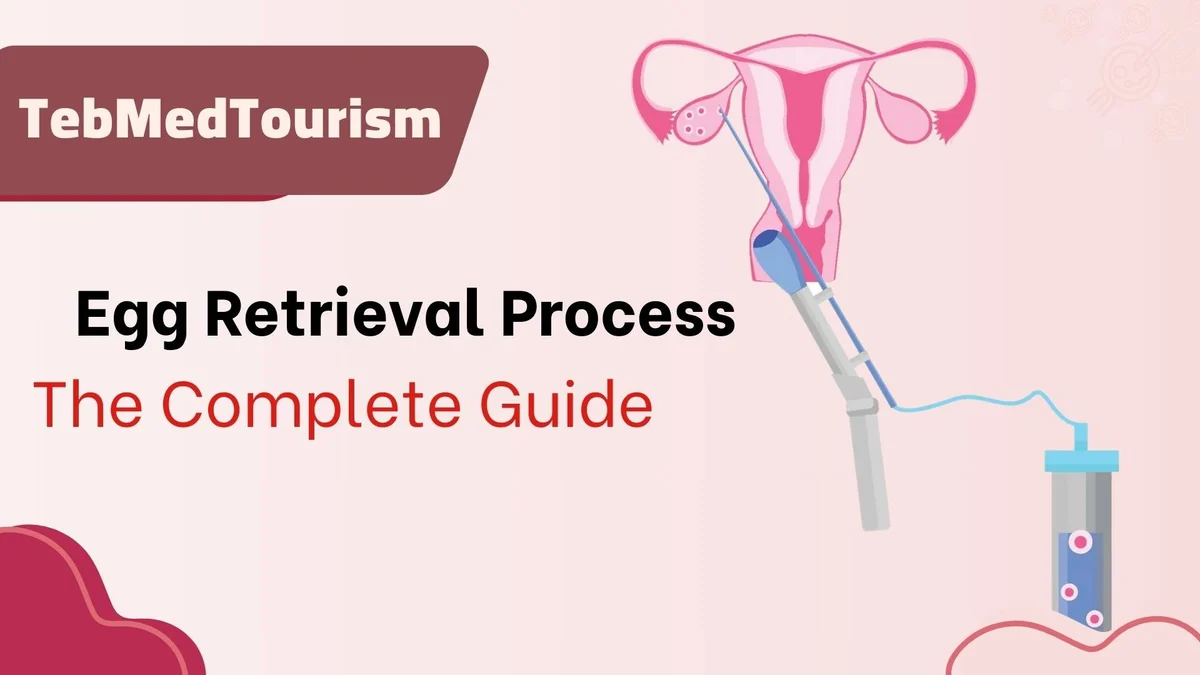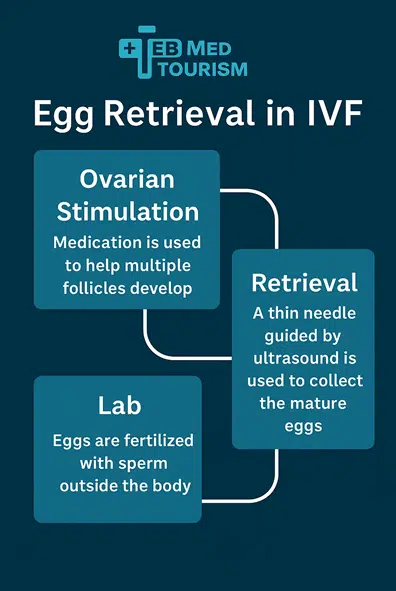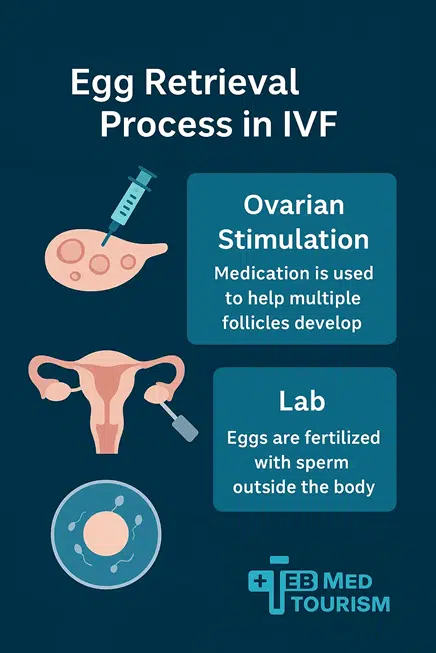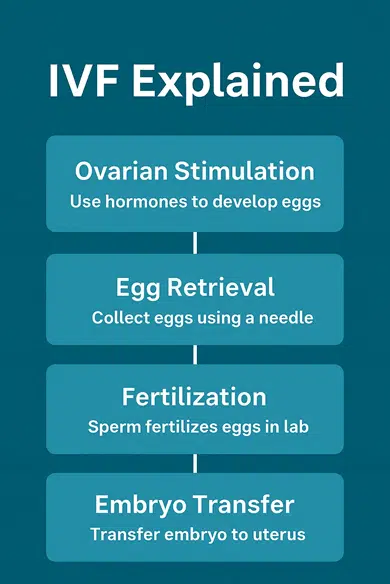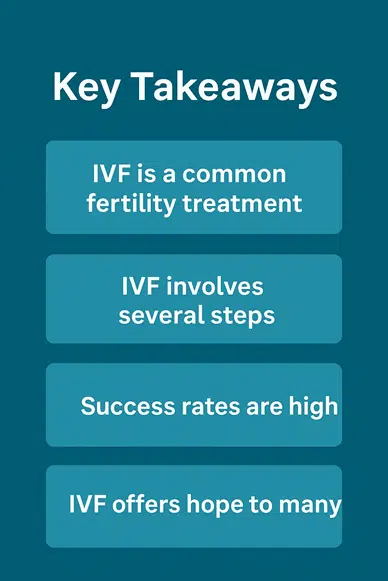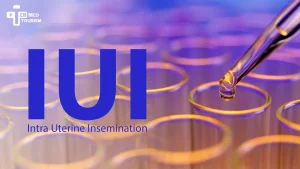Egg retrieval process in IVF is one of the most important stages in fertility treatment. Knowing this process can help those who want to start or grow a family make better decisions, feel less anxious, and have a higher chance of success.
The process begins with ovarian stimulation, and then fertility medications encourage the ovaries to produce multiple mature follicles. When the follicles are ready, the eggs are collected by a thin ultrasound-guided needle while the patient is under light sedation. After retrieval, the eggs are taken to the laboratory, where they are fertilized with sperm to create embryos that can later be transferred to the uterus.
What Is IVF Egg Retrieval?
The IVF egg retrieval process is a medical procedure used in fertility treatments to collect eggs from a woman’s ovaries and then fertilize them with sperm outside the body in a laboratory.
After fertilization, the resulting embryos are transferred back into a woman’s uterus to hopefully achieve pregnancy.
The egg retrieval process is usually done after the woman has undergone hormone treatments to stimulate her ovaries to produce multiple eggs.
These eggs are then carefully collected through a small, minimally invasive procedure. It’s a key step in IVF that helps increase the chances of successful fertilization and pregnancy.
Many couples who face infertility challenges choose destinations such as infertility treatment in Iran, which is recognized for advanced technologies and cost-effective solutions.
Step-by-Step Overview of the Egg Retrieval Process
The egg retrieval process is a critical part of IVF, and understanding each step can make it easier to navigate. Below, we break down what happens before, during, and after the egg retrieval, ensuring that you’re prepared every step of the way.
Preparing for Egg Retrieval
The preparation for egg retrieval starts well before the actual procedure. It involves optimizing your health, undergoing some lab tests, and following specific instructions from your fertility specialist.
Optimizing health and undergoing medical screening are vital before retrieval. For instance, many patients ask: Is egg donation painful? The truth is, with modern protocols, discomfort is usually mild and temporary.
- Optimizing Health for Fertility Window: For the best chances of success, it’s essential to focus on overall health before starting the egg retrieval process. This includes maintaining a balanced diet, managing stress, and ensuring you are in a healthy weight range. If you’re a smoker, quitting smoking can also significantly improve egg quality. Your fertility doctor will provide personalized advice based on your health.
- Pre-Cycle Lab Tests and Screening: Before starting the stimulation phase, you’ll need to undergo several tests, including blood work and an ultrasound. These tests help the doctor assess your ovarian reserve, hormone levels, and overall reproductive health. Screening for infections and any other underlying conditions will also be done to ensure the best possible outcome for the IVF process.
Stimulating the Ovaries for Egg Production
The next step is to stimulate your ovaries to produce multiple eggs. Normally, only one egg matures per cycle, but in IVF, we need several eggs to increase the chance of successful fertilization.
Reviewing Your IVF Calendar
A personalized IVF calendar and hormonal medications guide this phase. In some cases, fertilization may be carried out via ICSI in Iran, where a single sperm is injected directly into the egg, ensuring higher success rates in male-factor infertility.
Once your fertility specialist has reviewed your medical history and lab results, they will create a personalized IVF calendar. This calendar outlines when you will begin hormone treatments, how often you’ll have ultrasounds, and when your egg retrieval is scheduled. It’s essential to follow this schedule carefully to achieve the best results.
Medications and Injection Instructions
During the stimulation phase, you’ll take hormone injections to encourage your ovaries to produce multiple eggs. The most common medications include FSH (follicle-stimulating hormone) and LH (luteinizing hormone).
You’ll receive detailed instructions on how to administer these injections yourself. It’s important to stay on track with these medications for optimal egg development.
Follicle Monitoring and Ultrasound
Throughout the stimulation phase, you will visit your fertility clinic for regular monitoring. Ultrasounds and blood tests will check how your follicles (the sacs where eggs grow) are developing. The goal is to ensure that several follicles are maturing and that no complications are arising.
The Egg Retrieval Procedure
Egg retrieval is a minimally invasive procedure performed under light sedation. During the procedure, a thin needle is inserted through the vaginal wall and into the ovaries.
The doctor uses ultrasound guidance to collect the mature eggs from the follicles. Post-procedure, women often wonder about after egg retrieval how many days rest, which depends on symptoms such as bloating, spotting, or cramping, and also the period after egg retrieval—which may include temporary bloating, spotting, or cramping.
Lab Analysis & Fertilization of Eggs
After the eggs are retrieved, they are sent to the laboratory, where they are assessed for quality. The eggs are then fertilized with sperm either through conventional insemination or intracytoplasmic sperm injection (ICSI), depending on your specific needs.
Fertilized eggs are monitored for development, and embryos are cultured for a few days before being transferred into the uterus.
Rest & Recovery After Egg Retrieval
After the egg retrieval procedure, you’ll need to rest for a few hours before heading home. Some women experience mild cramping, bloating, or spotting, but these symptoms usually resolve in a day or two. During this period, many also report gas after egg retrieval, which occurs due to abdominal pressure, bloating, and air introduced during the procedure.
It’s essential to take it easy during the recovery period, avoid strenuous activity, and follow the post-procedure instructions from your doctor.
You’ll also need to follow up with your doctor to monitor how you’re healing and to discuss the next steps in the IVF process.
Side Effects and Risks of Egg Retrieval
While egg retrieval is generally a safe procedure, it does come with some potential side effects and risks. Some women experience mild discomfort, including bloating, cramps, or spotting.
This is often referred to as pain after egg retrieval, which typically resolves within a few days. It’s important to be aware of these to ensure that you’re well-prepared and can recognize any complications that may arise.
After the egg retrieval procedure, many women experience mild to moderate discomfort. This can include:
- Bloating and fullness: Due to ovarian stimulation, the ovaries may become enlarged, causing a feeling of fullness or bloating.
- Cramping: Mild cramping is common as the ovaries recover from the procedure.
- Spotting: Light vaginal bleeding or spotting can occur, which is typically not a cause for concern.
- Mood Swings: Hormonal medications can affect your mood, causing irritability or emotional fluctuations.
These side effects are usually temporary and subside within a few days after the procedure. One of the more serious risks of egg retrieval is Ovarian Hyperstimulation Syndrome (OHSS).
This condition can develop when the ovaries become overstimulated by fertility medications, leading to excessive fluid buildup in the abdomen and chest. Symptoms of OHSS include:
- Severe bloating
- Severe pain
- Rapid weight gain
- Difficulty breathing
- Nausea and vomiting
While severe cases are rare, it’s important to follow the doctor’s instructions carefully to avoid OHSS. If you experience any of these symptoms, contact your healthcare provider immediately.
As with any medical procedure, there is a small risk of infection or bleeding at the site where the needle was inserted. Signs of infection include:
- Fever
- Severe pain at the site
- Unusual discharge
If any of these occur, seek medical attention right away. Infections and bleeding are rare but can be serious if not addressed promptly.
The IVF process, including egg retrieval, can be emotionally challenging. The stress of hormone treatments, the procedure itself, and the anticipation of results can cause anxiety or emotional distress. It’s important to seek support from healthcare providers, friends, or family members during this time.
Counseling or support groups can also be helpful for managing emotional well-being. While these risks and side effects can be concerning, most women recover quickly and successfully after egg retrieval.
It’s essential to have open communication with your fertility specialist to ensure the best care and to address any concerns throughout the process.
Fertility Treatment Options After Egg Retrieval
Once the egg retrieval process is complete, there are several fertility treatment options available depending on your unique needs and circumstances.
These treatments aim to optimize the chances of achieving a successful pregnancy. Below are the primary options:
In Vitro Fertilization (IVF)
IVF is the most common fertility treatment following egg retrieval. This is the most common pathway after retrieval, especially in destinations like IVF in Iran, known for high success rates and affordability.
In this procedure, the retrieved eggs are fertilized with sperm in a controlled laboratory setting. Fertilization can occur through conventional insemination or a more precise technique called intracytoplasmic sperm injection (ICSI), where a single sperm is injected directly into the egg.
The resulting embryos are monitored for development and transferred to the uterus once they reach the appropriate stage, usually between three and five days.
Embryo Freezing (Cryopreservation)
For individuals or couples not ready to proceed with immediate embryo transfer, embryo freezing is an excellent option. After fertilization, the embryos are frozen using advanced techniques to preserve their quality.
This approach allows flexibility, enabling embryo transfer at a later time, whether due to personal, medical, or logistical reasons. Frozen embryos maintain high success rates and are often used in subsequent IVF cycles.
Egg Freezing (Oocyte Cryopreservation)
If fertilization isn’t immediately planned, egg freezing allows the retrieved eggs to be preserved for future use. This option is particularly beneficial for women who may wish to delay pregnancy due to career, health, or other personal factors.
The eggs are carefully frozen using vitrification, a rapid freezing method that minimizes the risk of ice crystal formation, preserving the eggs’ integrity.
Fertilization and Genetic Testing
For those concerned about genetic conditions, fertilized embryos can undergo preimplantation genetic testing (PGT).
This testing screens embryos for genetic abnormalities before transfer, helping identify the healthiest embryos for implantation. PGT can also assist in gender selection if desired, which is a service often sought in fertility clinics.
Preimplantation testing allows families to select the healthiest embryos. Some families also choose gender selection through IVF, while others explore religious or cultural concerns like egg donation in Islam, which addresses ethical and religious aspects of assisted reproduction.
Surrogacy Using Retrieved Eggs
When carrying a pregnancy isn’t possible, couples may turn to Surrogacy in Iran, where legal and medical frameworks support intended parents in achieving their dream of parenthood.
Retrieved eggs can be fertilized and the resulting embryos implanted into a gestational carrier. The surrogate will carry the pregnancy, allowing individuals or couples to achieve parenthood when traditional methods are not an option.
Conclusion
The egg retrieval process in IVF is a critical step in the IVF journey that plays a key role in helping individuals and couples achieve their dreams of parenthood.
Although the procedure may sound intimidating, it is generally safe, minimally invasive, and carried out with the utmost care. By understanding each stage, from ovarian stimulation to egg collection and recovery, patients can feel more informed and confident as they navigate this important step.
With advancements in fertility treatments and expert guidance from specialists, the chances of success are high. The emotional and physical support provided during the process is just as important, and seeking help when needed can make the experience more manageable.
At TebMedTourism, our dedicated team ensures that every patient receives personalized care and attention, offering clear instructions, regular monitoring, and emotional support throughout the journey.
Whether you’re undergoing IVF for the first time or considering future fertility options, egg retrieval is an essential part of the process that can pave the way for successful outcomes.
If you’re ready to take the next step in your fertility journey, TebMedTourism is here to guide you every step of the way with expertise and compassion.
What is the best age for egg retrieval?
The best age for egg retrieval is usually before 35, as egg quality and quantity are higher. Younger women generally have a better ovarian reserve, which increases the chances of successful fertilization and pregnancy.
How long after egg retrieval do you get pregnant?
Pregnancy doesn’t happen immediately after egg retrieval. The eggs are fertilized in the lab, and embryos are transferred to the uterus 3–5 days later. A pregnancy test is typically done about two weeks after embryo transfer.
How many eggs are retrieved for IVF?
The number of eggs retrieved during an IVF procedure can vary based on the individual’s response to ovarian stimulation. On average, around 10-15 eggs are collected, but this number can be higher or lower depending on factors like age, hormone levels, and ovarian reserve.
Can I use my eggs for future cycles?
Yes, it is possible to store your eggs for future cycles. Eggs can be frozen and preserved through a process called cryopreservation. This allows you to use them later for IVF treatment if needed, especially if you’re not ready for pregnancy at the moment or want to preserve fertility for medical reasons.
What happens if not enough eggs are retrieved?
If not enough eggs are retrieved, the IVF cycle may be less likely to succeed, as fewer embryos will be available for fertilization and transfer. In this case, the doctor may adjust the stimulation protocol for future cycles to try to retrieve more eggs.
When can you have sex after egg retrieval?
You should wait a few days until bloating, spotting, and cramping have resolved. Avoid sex until your doctor confirms it’s safe, since the ovaries are still enlarged and sensitive after stimulation.
How soon can I try again if the procedure is unsuccessful?
If the IVF procedure is unsuccessful, you can generally try again after one full menstrual cycle, which is about 4-6 weeks. This waiting period allows your body to recover from the hormonal treatments and the procedure itself.
Why no sex after egg retrieval?
Because the ovaries are enlarged and tender from stimulation, sex can cause pain, increase the risk of injury or infection, and in rare cases contribute to complications like ovarian torsion.
How to reduce bloating after egg retrieval?
You can reduce bloating after egg retrieval by resting, staying well-hydrated, eating light, balanced meals, and avoiding strenuous activity. Bloating usually improves within a few days.







